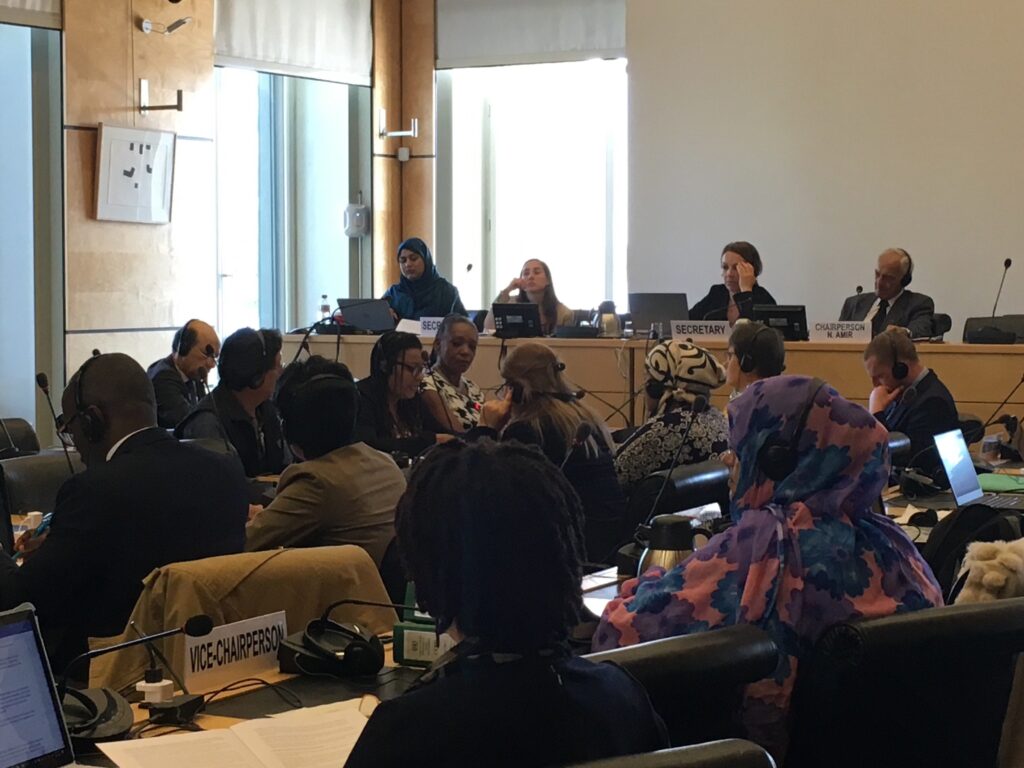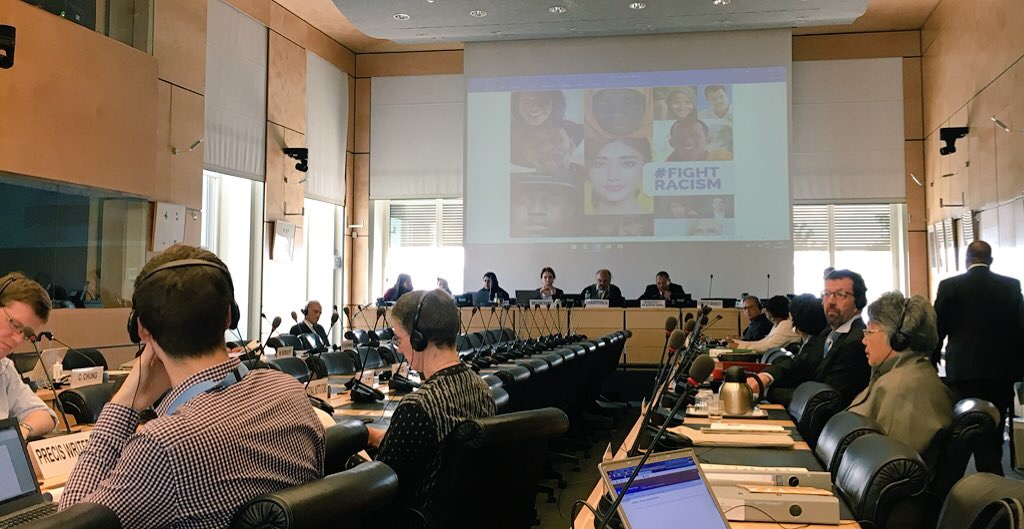Human Rights Day: Continuing on the path towards human rights for all
Washington, D.C.; December 10, 2020.- 72 years after the United Nations General Assembly adopted the Universal Declaration of Human Rights, the world has not yet achieved the full guarantee and enjoyment of each person’s inherent rights. In Latin America and the Caribbean, structures that contribute to human rights violations, particularly violations against historically marginalized populations, remain persistent and in some cases are worsening.
This December 10th, the International Institute on Race, Equality and Human Rights (Race and Equality) joins the international celebration of Human Rights Day by reviewing the human rights situation across the region, particularly the countries where we partner with civil society: Brazil, Colombia, Cuba, the Dominican Republic, Nicaragua, Mexico, Panama, and Peru.
The killing of George Floyd
Race and Equality added our voice to the global outrage sparked by the killing of George Floyd, a Black U.S. citizen, at the hands four white police officers in Minneapolis, Minnesota on May 25th. Video of the tragedy on social media sparked indignation and a re-examination of the realities of racism and police brutality in the U.S.
We were heartened by the rapid and forceful response of the international human rights protection system to this travesty, including the June 17th Urgent Debate of the United Nations Human Rights Council on “the current racially inspired human rights violations, systemic racism, police brutality and the violence against peaceful protest” and the adoption of Human Rights Council Resolution 43/1. We are concerned, however, at the lack of follow-up effort to strengthen the various international human rights mechanisms’ ability to monitor States’ compliance with their obligations in this regard.
COVID-19: a multiplier of inequality
The COVID-19 pandemic has made it clearer than ever that economic inequality and inequality in access to health and education have deadly consequences across the region. It has also made clear that when States fail to design public policies with an intersectional approach, indigenous, Afro-descendant, and LGBTI populations who have suffered historical marginalization and discrimination are the hardest-hit.
In Brazil, for example, the Afro-Brazilian population has seen its most fundamental right to life threatened by the denialism of President Jair Bolsonaro’s administration. Afro-Brazilians have been the population most negatively impacted by the current government’s refusal to implement proper public health measures. During the most critical months of the pandemic, Brazilian women were murdered at a rate of one every nine hours. Of these victims, 73% were Afro-descendant women.
Discrimination for reasons of sexual orientation and gender identity has also manifested itself in the context of COVID-19. In Colombia, a trans woman and sex worker named Alejandra Monocuco died in late May after medical personnel refused to give her emergency care. The personnel, who had been called by Alejandra’s companions when she suddenly became unable to breathe, refused to approach her when they learned that she was HIV-positive and told her companions that she must have been suffering an “overdose.”
The COVID-19 pandemic has coincided with the 2020 Census in Mexico, a situation that Afro-Mexican activists fear has affected census-takers’ ability to collect trustworthy data on the Afro-descendant population. Particularly in parts of Mexico not normally thought of as Afro-Mexican population centers, low rates of self-identification among Afro-descendants can lead to undercounting.
Anti-LGBTI violence and hatred
Latin America continues to be the region with the most murders of trans people. In Brazil, where the current government continues to tolerate and encourage LGBTI-phobia, 151 trans people have been murdered this year. In Colombia, Race and Equality has worked with our grassroots partners to record 65 incidents of discrimination, harassment, assault, and murder against people with diverse sexual orientations and/or gender identities.
The refusal to recognize LGBTI people’s rights and respond to their demands for justice is concerning across the region. In Peru, for example, the Constitutional Court rejected Óscar Ugarteche’s effort to have his marriage to his husband Fidel Aroche, celebrated in Mexico in 2010, inscribed in the National Civil Registry. Peru also failed to account for the rights of trans and non-binary people when it implemented its quarantine policy known as pico y género,[1] leading to acts of discrimination against this population.
In Panama, civil society continues to demand that the government introduce a law legalizing marriage equality for legislative debate, while LGBTI organizations in the Dominican Republic are leading a campaign for a Law on Equality and Non-Discrimination to protect the rights of Afro-descendant and LGBTI people.
Human rights defenders continue to be murdered
Four years after the historic Final Peace Accords ended more than 50 years of armed conflict between the Colombian government and the FARC rebels, the country is suffering one of the worst periods of violence in recent memory. The rise in violence is attributable to attacks against social leaders, human rights defenders, and ex-combatants participating in the peace program and to violent murders of civilians, such as the August 11th murder of five Young Afro-Colombian men in the Llano Verde neighborhood of Cali.
According to the Ideas for Peace Foundation (Indepaz), 287 murders of rights defenders have taken place this year as of December 7th. Indepaz reports that 688 such murders have taken place during the current administration of President Ivan Duque and a total of 1,086 have occurred since the signing of the Peace Accords. Colombian civil society continues to call for an urgent response on the part of the State, but President Duque’s government persists in prioritizing its own policy of “Peace with Legality” above the implementation of the Accords. This policy neglects vital elements of building sustainable peace, particularly women’s rights and the rights of ethnic minorities, which had been enshrined in the Accords’ groundbreaking “Ethnic Chapter.”
Repression of civil society
In Cuba, repression of activists, journalists, artists, and human rights defenders has increased as the government uses the COVID-19 pandemic as a pretext for restricting the activities of independent civil society. Short-term detentions, raids and searches, confiscations of property, summary trials, and arbitrary criminal charges such as “contempt” or “public disorder” are all wielded against civil society leaders.
In Nicaragua, where the human rights crisis of April 2018 has not yet abated, authorities continue to persecute those who dissent from the current government. In the context of a public health and economic crisis sparked by COVID-19, this repression severely harms Nicaraguans’ fundamental rights. Currently, 109 people remain behind bars as political prisoners stemming from protests. Two recent laws (the Law on Foreign Agents and the Special La won Cybercrime) and the recent effort to punish “hate crimes” with life imprisonment pose acute threats to the freedoms of association, assembly, and expression.
Nicaraguan authorities continue to wield repression against those who demand accountability and respect for human rights. Along with their families, these rights defenders are threatened, monitored, and at times prevented from moving freely by the police. Meanwhile, an average of 40 violations of freedom of the press, including both physical attacks and persecution in the courts, are recorded each month.
On International Human Rights Day, Race and Equality reaffirms our commitment to building the capacities of in-country organizations to document human rights violations, defend their rights before the Inter-American and United Nations human rights systems, and advocate for reforms that will lead to the full enjoyment of human rights for all, without discrimination. We call upon all States to comply with their obligations to protect and promote human rights, obligations that are more pressing during the COVID-19 pandemic than ever.
We commit to continue our work advancing human rights for all people in the countries where we work, regardless of their race, sex, gender, sexual orientation, gender identity, or political beliefs. We salute the efforts of the Inter-American Commission on Human Rights, the Inter-American Court on Human Rights, the United Nations Human Rights Council, the UN treaty bodies, and the special procedures of the UN human rights system, and express our hope that they will remain steadfast in their work.
[1] Pico y género, which was also implemented in other parts of the region, called for women and men to leave the house on alternating days




